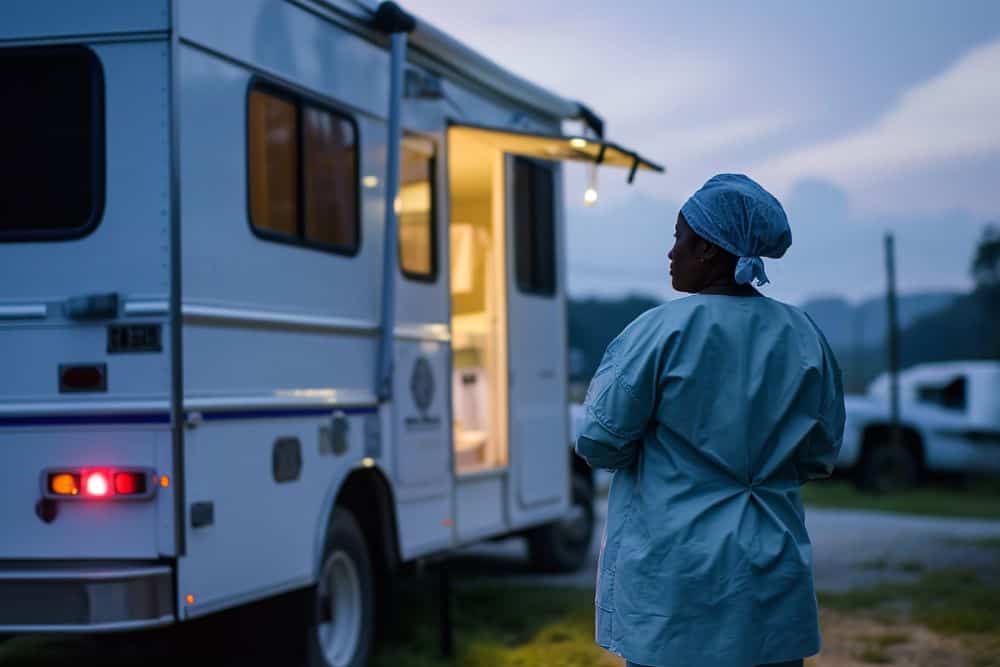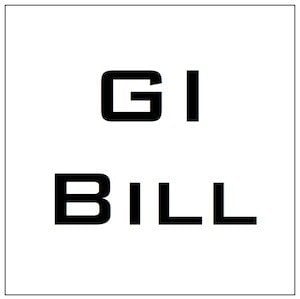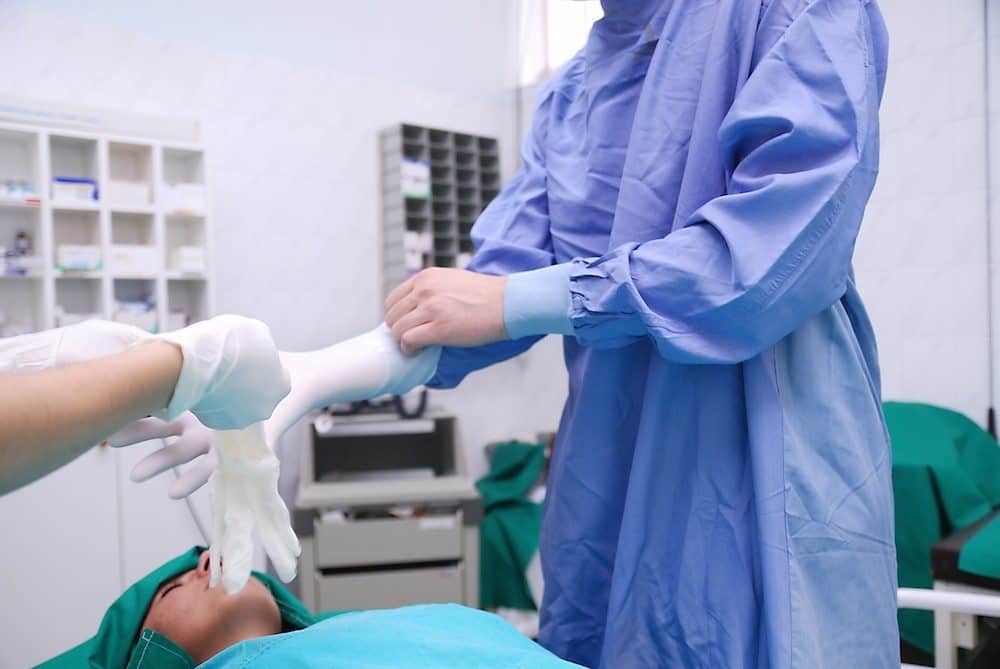Birmingham VA Introduces New Mobile Medical Unit for Veterans
Birmingham’s Department of Veterans Affairs has unveiled its Mobile Medical Unit (MMU), aiming to bridge the healthcare accessibility gap for Alabama’s homeless and remote-area veterans. This development is presented as a beacon of hope, yet begs the question: Is it enough to combat the systemic healthcare challenges veterans face?
MMU’s Potential and Limitations
Billed as a “clinic on wheels,” the MMU seeks to tackle the transportation barriers preventing many veterans from accessing necessary health services. With two exam rooms, telehealth capabilities, and diagnostic tools, the MMU promises a direct approach to community-based care. However, while the unit’s capabilities are commendable, one must consider whether this solution is scalable and if it addresses the root causes of healthcare inaccessibility for veterans.
Outreach Efforts and Real Impact
Dr. Stefan Kertesz has highlighted the primary objectives behind the deployment of the MMU, stating, “The goal of the MMU is to make Birmingham VA a healthcare organization that makes a serious difference in the lives of homeless Veterans. We are among the first of 32 VA medical facilities with an MMU, a mobile clinic that is tailored for Veterans who are homeless or formerly homeless. This will help us bring those Veterans into care.” This initiative, while commendable for its direct approach and tailored services, underscores the larger challenge: ensuring consistent, impactful healthcare solutions that address the complex needs of the homeless veteran demographic.
By positioning the MMU as a vital tool for improving outreach to homeless veterans, Kertesz aims to bridge the gap between these individuals and the healthcare system. This move could indeed mark a positive step toward integrating vulnerable veterans back into regular care. However, it also brings to light the persistent, systemic struggles to provide effective healthcare to all segments of the veteran population, especially those who have been historically marginalized or underserved.
Community Commitment and Healthcare Access
Mayor Randall Woodfin acknowledges the VA’s efforts, reflecting on his own experiences with veterans within the community. His endorsement brings attention to the civic duty to support our veterans comprehensively. Yet, this commitment must be matched with transparent, effective actions that go beyond temporary fixes and address long-standing healthcare deficiencies.
“Those who have sacrificed, who served in the military, made a commitment to us. I believe we owe them a commitment to provide all forms of care and that includes access to health care,” Woodfin said.
Strategic Outreach: A Step Towards Comprehensive Care?
Dr. Ladi Kukoyi discusses the Mobile Medical Unit’s (MMU) importance in accessing underserved veteran populations, presenting it as a significant resource for emergencies and rural healthcare needs. This initiative suggests the MMU as a multifaceted tool aimed at improving healthcare access. However, it also opens a conversation on the VA’s strategies and resource distribution to achieve enduring, comprehensive care for veterans across all regions.
“Care to Veterans is not limited to the buildings we are in. We are going to use the MMU to go to every nook and cranny to find every Veteran. They served us and we want to serve them. This is a strategic asset for Veterans residing in remote locations. The MMU can also be deployed during emergencies such as natural disasters, pandemics, or for rural health outreach,” said Kukoyi, executive director of Birmingham VA.
Beyond the MMU: Addressing Broader Goals
The launch of the MMU coincides with the VA’s objectives to combat veteran homelessness and promote preventive healthcare. While the initiative has reportedly helped exceed local housing targets, it’s important to scrutinize how these efforts translate into holistic improvements in veterans’ lives, questioning whether housing successes are consistently leading to better healthcare outcomes.
Conclusion: A Step Forward, but Scrutiny Needed
The introduction of the Birmingham VA’s MMU marks a forward step in addressing healthcare access for veterans. However, this move also serves as a reminder of the broader, systemic challenges that persist within the VA’s healthcare system. As the MMU begins its operations, it will be crucial to monitor its effectiveness, scalability, and impact on the veteran community, ensuring that this initiative is not just a well-intentioned gesture but a part of a larger, more comprehensive solution to the healthcare challenges our veterans face.
Frequently Asked Questions about Birmingham VA’s Mobile Medical Unit
What services does the Mobile Medical Unit (MMU) provide?
The MMU is equipped with two examination rooms, advanced telehealth capabilities, and a range of diagnostic tools. It aims to provide specialized healthcare services directly to veterans, focusing on those who are homeless or living in remote areas.
Who can access the services offered by the MMU?
The primary aim of the MMU is to serve homeless veterans and those residing in central and northern Alabama’s remote locations. However, all veterans facing transportation barriers to healthcare services might be eligible for support from the MMU.
How does the MMU address healthcare barriers for homeless veterans?
By physically traveling to locations where homeless veterans reside or frequent, the MMU overcomes transportation hurdles, bringing essential health services directly to individuals who may struggle to access traditional VA healthcare facilities.
Can the MMU be used in emergencies like natural disasters or pandemics?
Yes, the MMU is designed to be a versatile asset that can be deployed during emergencies such as natural disasters, pandemics, and other crisis situations, providing critical healthcare services when conventional facilities may be inaccessible or overwhelmed.
How can veterans find out when the MMU will be in their area?
Veterans interested in accessing the MMU’s services can obtain schedule and location information through the Birmingham VA’s official website, social media channels, or by contacting the VA directly. The MMU’s itinerary is planned to cover various locations, prioritizing areas identified as having significant healthcare access issues among the veteran population.





Considering you have to sue to get anything serious done at VA especially in the southern USA, perhaps next they will extend the courtesy of mobile euthanasia clinics. Matt Geatz had a point. They should be issuing insurance cards. See even Congress knows how derelict and dysfunctional the VHA is. Whoever is responsible should be jailed.
Outstanding and way overdue. Glad to hear they’re are finally piloting MMU.